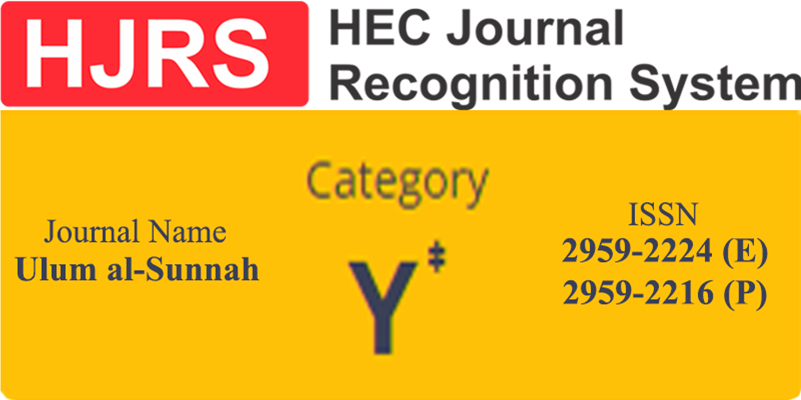دلائل النبوۃ لأبی نعیم اصفہانی کے منہج و اسلوب کا تحقیقی جائزہ
A Research Review of the Methodology and Style of Abu Na'im Isfahani's Dalail-Ul-Nubuwwah
Abstract
Imam Abu Nu'aym Ahmad ibn 'Abdullah al-Isfahani (d. 430 AH) was a prominent scholar of the fifth century Hijrah, known for his expertise in tafsir, hadith, and fiqh. Among his numerous scholarly contributions, Dala'il al-Nubuwwah occupies a central place in the genre of prophetic biography (sīrah), wherein he systematically compiles evidences of the Prophethood of the Holy Prophet Muhammad ﷺ in a traditional hadith-based framework. This article aims to explore the methodological framework and scholarly approach adopted by Imam Abu Nu'aym in this work. Through a thematic analysis of the text, the study outlines seven core principles that characterize his method, reflecting both his scholarly precision and commitment to traditional hadith sciences. Given the wide scholarly acceptance of Dala'il al-Nubuwwah, this research seeks to underscore its significance within early Islamic historiography and its continued relevance for contemporary studies in hadith and sīrah literature.
Downloads
Published
How to Cite
Issue
Section
License
Copyright (c) 2025 Muhammad Saqib Raza, Muhammad Ishfaq

This work is licensed under a Creative Commons Attribution-NonCommercial 4.0 International License.
This is an open-access journal which means that all content is freely available without charge to the user or his/her institution. Users are allowed to read, download, copy, distribute, print, search, or link to the full texts of the articles, or use them for any other lawful purpose, without asking prior permission from the publisher or the author. All articles are available on the internet to all users immediately upon publication. Non-commercial use and distribution in any medium are permitted, provided the author and the journal are properly credited.










 Research Journal Indexed by Google Scholar
Research Journal Indexed by Google Scholar